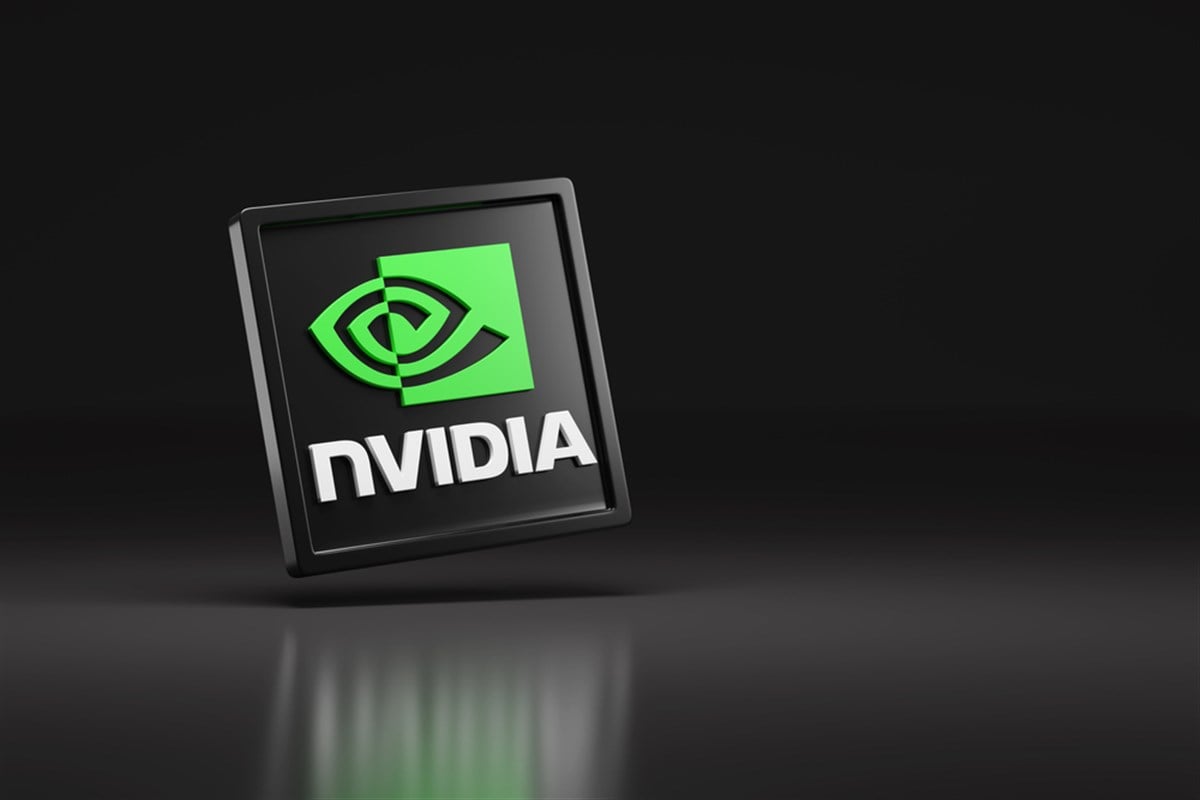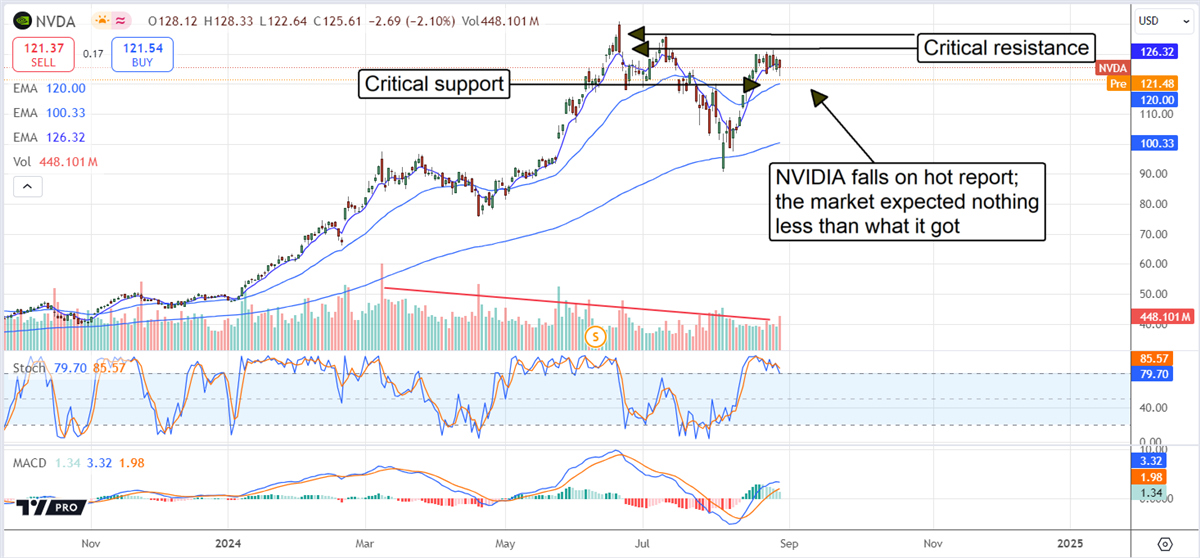
Given the trends and consensus forecast, NVIDIA (NASDAQ: NVDA) had a smoking hot quarter, and new stock price highs will likely come soon, probably before the end of the year. The catch is that details within the report may lead to volatility and lower stock prices before new highs are set.
Critical takeaways are that growth is slowing and growth is priced in, two factors that seldom lead markets higher. That aside, the outlook for NVIDIA revenue, earnings, cash flow, and capital return is robust and likely to support the uptrend.
The only question is how deep a pullback NVIDIA may provide. Because macroeconomic factors impact the market, and September is typically a poor month for chip stocks, NVIDIA shares could fall to the $100 level, where firm support is present.
At the very least, investors should expect increased volatility over the next month. As crucial as NVIDIA is to the market, the upcoming FOMC decisions, inflation, and interest rates are more important because they affect the fundamental conditions driving business today.
NVIDIA Smoked Consensus, but Strength was Expected
NVIDIA had a robust quarter, outperforming the consensus estimate for revenue by 1000 basis points. The outperformance should have resulted in upward stock price movement but didn’t because the whisper figures expected the strength. Trends over the last year have NVIDIA outperforming by at least 500 basis points per quarter, leading to numerous revisions, including for Q2.
The Q2 consensus forecasted about $28.7 billion in revenue but is up more than 100% in the last year, with many of the freshest targets expecting more than reported. In that light, the revenue is fantastic and outperformed the consensus but left the market wanting more.
Margin, cash flow, and earnings are a similar story. NVIDIA widened its gross and operating margins on revenue leverage despite increased spending, outperforming a consensus that has trended steadily higher all year.
The resulting triple-digit gains in operating income, net income, and earnings are solid news for investors but nothing more than what the market expected, providing little catalyst for buyers.
Guidance is the same. The company continued the trend of outperforming consensus and compounding it with hot guidance, but the market wanted more. In the last two quarters, guidance topped consensus by 500 basis points but only by 230 bps in Q2, and growth is slowing considerably, into the 80% range, down from triple digits.
The takeaway is that NVIDIA is firing on all cylinders with no end in sight, but the strength and growth are priced in. Trading at roughly 33X the 2026 earnings outlook, NVIDIA’s valuation aligns with historical norms for mature, blue-chip tech leaders like Microsoft (NASDAQ: MSFT), Amazon (NASDAQ: AMZN), and Apple (NASDAQ: AAPL), which suggests new all-time highs could be hard to come by.
Analysts Lift Targets for NVIDIA; Look Ahead to Next-Gen Demand
NVIDIA also updated news about its Blackwell line, which will begin impacting revenue in Q4. The company shipped the first samples to clients and indicated that the production ramp would begin in Q4. Demand for liquid-cooled components is also strong and expected to help sustain strength for NVIDIA and the server-supply chain companies such as Dell (NYSE: DELL), Super Micro Computer (NASDAQ: SMCI), and HP Enterprise (NYSE: HPE).
Analysts are responding favorably to the news and raising their stock price targets. Marketbeat tracked nearly a dozen revisions within the first eighteen hours of the report, with all including a higher price target. The bulk of targets, about 80%, range from $145 to $165, with an average target of $155. That compares favorably to the pre-release consensus of $135 and implies new highs will be set within the next twelve months.
The NVIDIA Technical Trading Outlook
NVIDIA issued a strong report but fell on the news because it was expected. The move has the market down more than 3% in premarket trading and is showing resistance at a critical level. That level coincides with two recent price peaks and may cap gains for the foreseeable future. The caveat for bears is that the market has yet to fall below the 30-day moving average. If the price action sustains support at this level, the new highs may come sooner rather than later. Volatility and whipsaw action are expected in either scenario.

